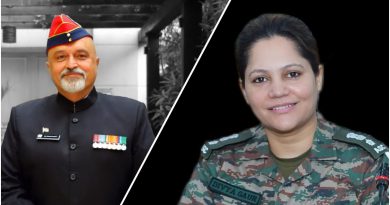Violence erupts again at Jerusalem’s Al-Aqsa Mosque
Gaza/Jerusalem (Reuters) – Israeli police clashed with Palestinians at Jerusalem’s Al-Aqsa Mosque a second time on Wednesday, witnesses said, hours after the arrest and removal of more than 350 people in a police raid at the compound and despite a U.S. appeal to ease tensions.
The confrontations, during the Muslim holy month of Ramadan and on the eve of the Jewish Passover holiday, triggered a cross-border exchange of fire in Gaza and stoked fears of further violence.
In the second instance, late at night, police entered the compound and tried to evacuate worshippers, using stun grenades and firing rubber bullets, said staff of the Waqf, the Jordanian-appointed Islamic organisation managing the complex.
Worshippers threw objects at police, witnesses said. The Palestinian Red Crescent said six people were injured.
In a statement, police said dozens of youngsters brought rocks and firecrackers into the mosque and had tried to barricade themselves inside. The Waqf, however, said police entered the mosque before prayers were over.
Nabil Abu Rudeineh, spokesman for Palestinian President Mahmoud Abbas, said: “Israel’s raid into Al-Aqsa mosque, its assault on worshippers, is a slap to recent U.S. efforts which tried to create calm and stability during the month of Ramadan.”
Less than 24 hours earlier, police raided the mosque to try to remove what they said were masked agitators who locked themselves inside after attempts to remove them by dialogue failed.
The Palestinian Red Crescent said 12 Palestinians were injured in the earlier clash, including from rubber-tipped bullets and beatings. Israeli police said two officers were injured.
White House national security spokesman John Kirby voiced concern about the violence at the mosque and said it was imperative that Israelis and Palestinians de-escalate tensions.
Violence Spreads To Gaza Border
Palestinian militants fired at least nine rockets from Gaza into Israel after the first clash, drawing air strikes which Israel said targeted weapon production sites for the Islamist group Hamas that controls the blockaded coastal enclave.
No casualties were reported on either side of the Gaza border. Hamas did not claim responsibility for the rocket attacks but said they were a response to the raid on Al-Aqsa, where clashes in 2021 set off a 10-day war with Gaza.
Just before the second Al-Aqsa clash, two more rockets were fired from Gaza. The Israeli military said one fell short and the other in an open space
“We are not interested in an escalation but we are ready for any scenario,” Israeli military spokesman Daniel Hagari said earlier in the day.
Al-Aqsa compound in Jerusalem’s Old City is Islam’s third holiest site where tens of thousands pray during Ramadan. It is also Judaism’s most sacred site, revered as Temple Mount, a vestige of the two biblical Jewish temples.
Israeli Prime Minister Benjamin Netanyahu blamed the situation on “extremists” who barricaded themselves inside the mosque with weapons, stones and fireworks.
“Israel is committed to maintaining freedom of worship, free access to all religions and the status quo on the Temple Mount and will not allow violent extremists to change that,” he said in a statement.
Under a longstanding “status quo” arrangement governing the compound, non-Muslims can visit but only Muslims may worship. Some Jewish visitors have increasingly prayed there despite that arrangement.
The Waqf described the police actions as a “flagrant assault on the identity and the function of the mosque as a place of worship for Muslims alone”.
UN also call for easing of tension
“Leaders on all sides must act responsibly and refrain from steps that could escalate tensions,” said the U.N. Special Coordinator for the Middle East Peace Process, Tor Wennesland.
The Arab League held an emergency meeting after which it condemned the raid and said it endangered regional stability.
The United Arab Emirates (UAE) and China asked the 15-member United Nations Security Council to discuss the situation behind closed doors on Thursday, said diplomats.
The UAE’s foreign ministry also said “worshippers should not barricade themselves inside the mosque and places of worship with weapons and explosives”.
Jordan and Egypt, both involved in U.S.-backed efforts to de-escalate Israel-Palestinian tensions, condemned the incident, as did Turkey. Saudi Arabia, with which Israel hopes to normalise ties, said Israel’s “storming” of Al-Aqsa undermined peace efforts.
The Palestinian foreign ministry said: “Israel’s aggression against the holy Al-Aqsa Mosque Compound is an egregious assault on the basic right of Palestinians to worship freely in their holy site.” In Gaza, thousands rallied in protest.
With Israel still reeling from weeks of protests over Netanyahu’s plans to rein in the powers of the Supreme Court, the incident added to an already fevered political atmosphere.
Far-right police minister Itamar Ben-Gvir called for a harsh response. “Hamas rockets require more than blasting dunes and empty sites. It’s time to rip heads off in Gaza,” he said in a tweet.
In the West Bank town of Beit Ummar, Palestinian protesters burned tyres and threw rocks and explosive devices at Israeli soldiers, one of whom was shot and wounded, the military said.



